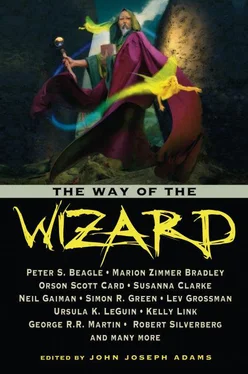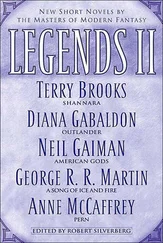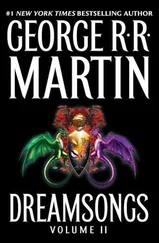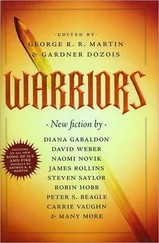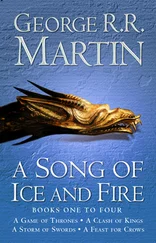Our next tale, about a gentleman’s club for con artists, provides a new twist on this old idea, albeit one involving a much grander bridge and a much grander swindle.
How to Sell the Ponti Bridge
Neil Gaiman
My favorite rogues’ club is the oldest and still the most exclusive in all the Seven Worlds. It was formed by a loose association of rogues, cheats, scoundrels, and confidence men almost seventy thousand years ago. It has been copied many times in many places (there was one started quite recently, within the last five hundred years at any rate, in the City of London), but none of the other clubs matches the original Rogues’ Club, in the city of Lost Carnadine, for atmosphere. No other club has quite so select a membership.
And the membership of the Lost Carnadine Rogues’ Club is particularly select. You will understand the kind of person who makes it to membership if I tell you that I myself have seen, walking or sitting or eating or talking, in its many rooms, such notables as Daraxius Lo (who sold the Kzem a frog-bat on a holy day), Prottle (who sold the palace of the King of Vandaria to the King of Vandaria), and the self-styled Lord Niff (who, I have heard it whispered, was the original inventor of the fox twist, the cheat that broke the bank at the Casino Grande). In addition, I have seen Rogues of interuniversal renown fail to gain admittance to even discuss their membership with the secretary — on one memorable day I passed a famous financier, in company with the head of the Hy-Brasail mafia and a preeminent prime minister on their way down the back stairs with the blackest of expressions upon their faces, having obviously been told not even to think about returning. No, the ones who make it into the Rogues’ Club are a high bunch. I am sure that you will have heard of each of them. Not under those names, of course, but the touch is distinctive, is it not?
I myself gained membership by means of a brilliant piece of creative scientific research, something that revolutionized the thinking of a whole generation. It was my disdain for regular methodology and, as I have said, creative research that gained me membership, and when I am in that part of the cosmos I make a point of stopping off for an evening, taking in some sparkling conversation, drinking the club’s fine wines, and basking in the presence of my moral equals.
It was late in the evening and the log fire was burning low in the grate, and a handful of us sat and drank one of the fine dark wines of Spidireen in an alcove in the great hall. “Of course,” one of my new friends was saying, “there are some scams that no self-respecting rogue would ever touch, they are so old and classless and tired. For example, selling a tourist the Ponti Bridge.”
“It’s the same with Nelson’s Column, or the Eiffel Tower, or the Brooklyn Bridge, back on my home-world,” I told them. “Sad little con games, with as much class as a back-alley game of Find the Lady. But look on the good side: Nobody who sold the Ponti Bridge would ever get membership in a club like this.”
“No?” said a quiet voice from the corner of the room. “How strange. I do believe it was the time I sold the Ponti Bridge that gained me membership in this club.” A tall gentleman, quite bald and most exquisitely dressed, got up from the chair in which he had been sitting, and walked over to us. He was sipping the inside of an imported rhûm fruit, and smiling, I think at the effect that he had created. He walked over to us, pulled up a cushion, and sat down. “I don’t believe we’ve met,” he said.
My friends introduced themselves (the gray-haired deft woman, Gloathis; the short, quiet dodger Redcap) as did I.
He smiled wider. “Your fame precedes each of you, I am honored. You may call me Stoat.”
“Stoat?” said Gloathis. “The only Stoat I ever heard of was the man who pulled the Derana Kite job, but that was… what, over a hundred years ago. What am I thinking? You adopted the name as a tribute, I presume.”
“You are a wise woman,” said Stoat. “It would be impossible for me to be the same man.” He leaned forward on his cushion. “You were talking about the sale of the Ponti Bridge?”
“Indeed we were.”
“And you were all of the opinion that selling the Ponti Bridge is a measly scam, unworthy of a member of this club? And perhaps you are right. Let us examine the ingredients of a good scam.” He ticked off the points on the fingers of his left hand as he spoke. “Firstly, the scam must be credible. Secondly, it must be simple — the more complex the more chance of error. Thirdly, when the sucker is stung he must be stung in such a way as to prevent him from ever turning to the law. Fourthly, the mainspring of any elegant con is human greed and human vanity. Lastly, it must involve trust — confidence, if you will.”
“Surely,” said Gloathis.
“So you are telling me that the sale of the Ponti Bridge — or any other major landmark not yours to sell — cannot have these characteristics? Gentlemen. Lady. Let me tell you my story.
“I had arrived in Ponti some years ago almost penniless. I had but thirty gold crowns, and I needed a million. Why? I am afraid that is another story. I took stock of myself — I had the gold crowns and some smart robes. I was fluent in the aristocratic Ponti dialect, and I am, I pride myself, quite brilliant. Still, I could think of nothing that would bring me the kind of money I had to have in the time by which I needed it. My mind, usually teeming and coruscating with fine schemes, was a perfect blank. So, trusting to my gods to bring me inspiration, I went on a guided tour of the city… ”
Ponti lies to the south and to the east, a free city and port at the foot of the Mountains of Dawn. Ponti is a sprawling city, on either side of the Bay of Dawn, a beautiful natural harbor. Spanning the bay is the bridge, which was built of jewels, of mortar, and of magic nearly two thousand years ago. There were jeers when it was first planned and begun, for none credited that a structure almost half a mile across could ever be successfully completed, or would stand for long once erected, but the bridge was completed, and the jeers turned to gasps of awe and civic pride. It spanned the Bay of Dawn, a perfect structure that flashed and shone and glinted in myriad rainbow colors beneath the noon sun.
The tour guide paused at the foot of it. “As you can see, ladies and gentlemen, if you will examine closely, the bridge is built entirely of precious stones — rubies, diamonds, sapphires, emeralds, chryolanths, carbuncles, and such — and they are bound together with a transparent mortar which was crafted by the twin sages Hrolgar and Hrylthfgur out of a primal magic. The jewels are all real — make no mistake about that — and were gathered from all five corners of the world by Emmidus, King of Ponti at the time.”
A small boy near the front of the group turned to his mother and announced loudly, “We did him in school. He’s called Emmidus the Last, because there weren’t any more after him. And they told us—”
The tour guide interrupted smoothly. “The young man is quite correct. King Emmidus bankrupted the city-state obtaining the jewels, and thus set the scene for our current beneficent Ruling Enclave to appear.”
The small boy’s mother was now twisting his ear, which cheered the tour guide up immensely. “I’m sure you’ve heard that confidence tricksters are always trying to play tourists for mugs by telling them that they are representing the Ruling Enclave, and that as the owners of the bridge they are entitled to sell it. They get a hefty deposit, then scarper. To clarify matters,” he said, as he said five times each day, and he and the tourists chuckled together, “the bridge is definitely not for sale.” It was a good line. It always got a laugh.
Читать дальше
